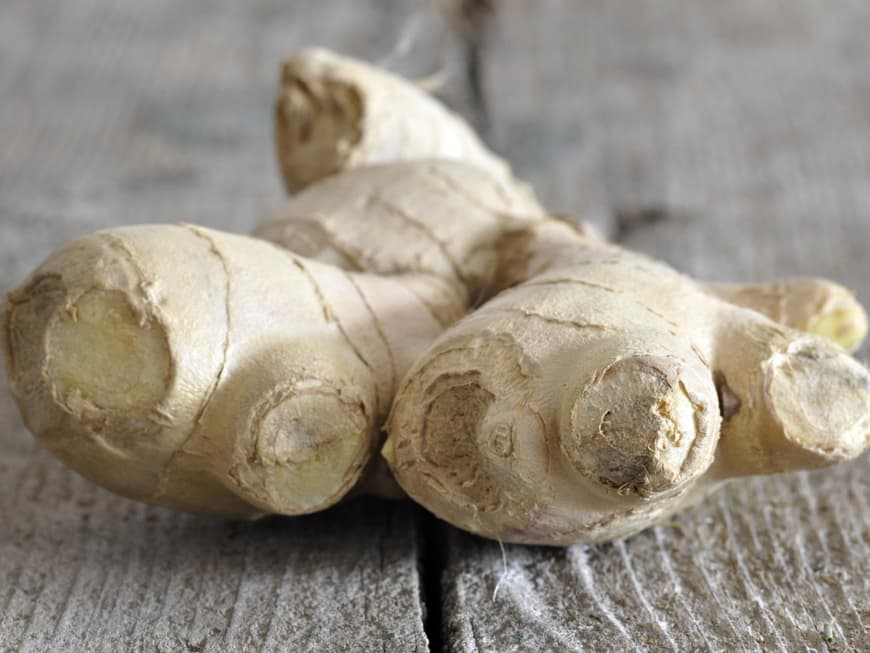Prevent the common cold with ginger
Due to its ingredients, including essential oils, ginger is often used to treat colds - both to prevent and treat flu-like infections and to strengthen the immune system as a whole. The pungent substances in ginger ensure that the nasal mucous membranes are better supplied with blood and the body's own heat receptors are activated. This means that germs are removed more quickly. Ginger is also rich in essential oils and contains germ-killing ingredients. Ginger tea is often taken for colds.
Ginger relieves pain
Ginger is known to help with colds. But the tuber also has a pain-relieving effect: the pungent substance gingerol contained in ginger has a similar structure to the active ingredient acetylsalicylic acid (ASA), which is found in aspirin tablets, for example. According to current scientific knowledge, gingerols inhibit the same enzymes in the body as the active ingredient ASA. For example, ginger extracts are used in the treatment of muscle pain and rheumatism.
The effect of ginger on digestive complaints
Ginger can also alleviate common digestive complaints such as flatulence and constipation. The pungent substances it contains (gingerols, shogaols) accelerate the production of bile and thus the digestion of fat. A cup of ginger tea is therefore particularly recommended after a fatty and heavy meal.
Ginger also helps with travel sickness
The ingredients in ginger help to alleviate both the notorious queasy stomach and nausea caused by travel sickness. On a longer journey, take a piece of ginger approximately every four hours.








